It’s a Light Hiking Fixed Blade with a Tough Steel
I love this knife for being small and comfortable. The handle just feels good to grip, even as small as it is. Plus the steel is great for camping tasks, and the blade has a grind that makes it easy to sharpen in the field (sort of, the big belly can make it complicated).
Key Takeaways
- Boxy but grippy handle is super comfortable;
- It was made for hiking excursions, and it damn well works well on one;
- There’s a lot of belly to this little blade, which may or may not be your thing;
- Comes in a great leather sheath that rides tight to the hip.
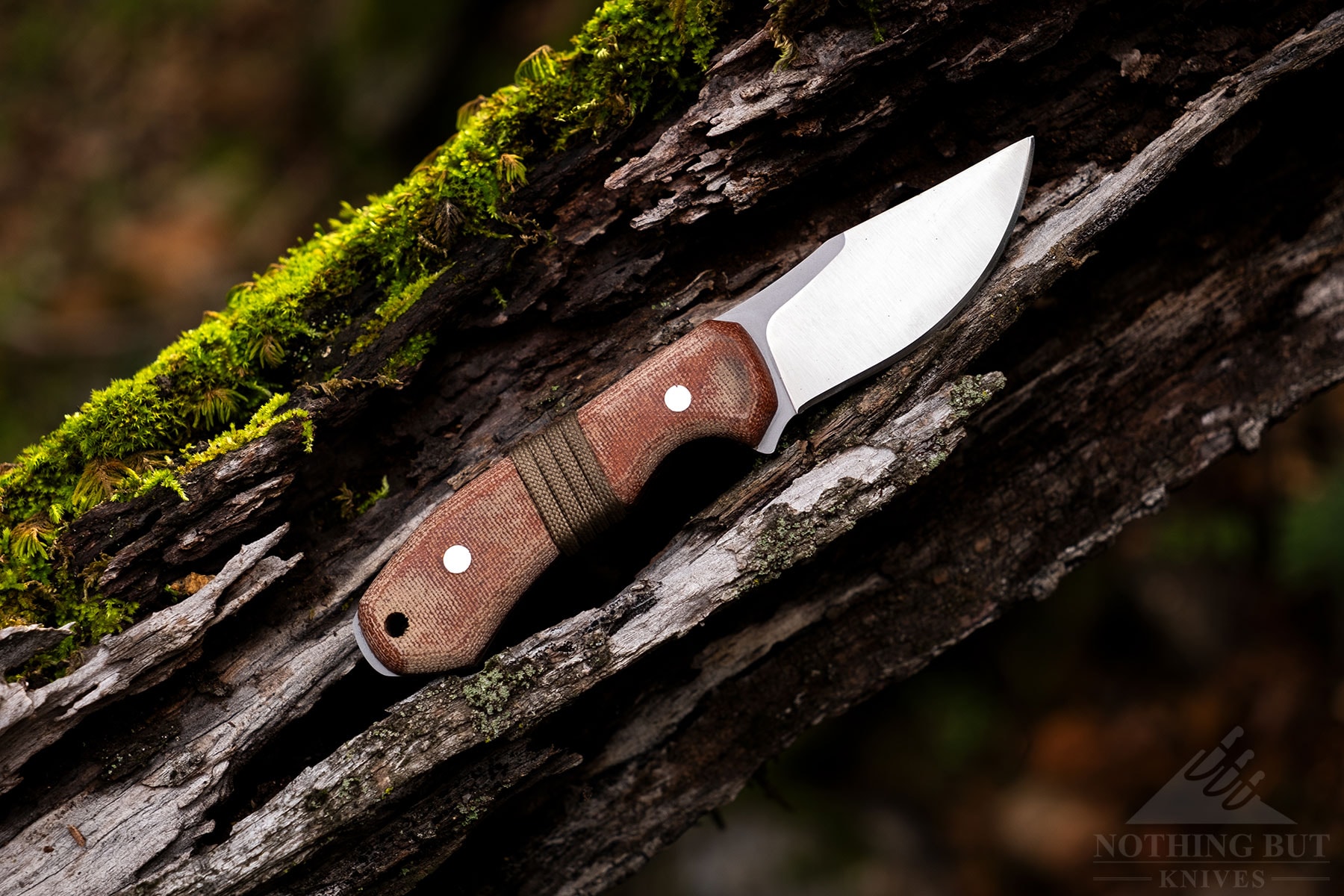
It was designed pretty much for exactly what the name implies: As a wingman for your hike along the trail. Designer Jason Breeden basically wanted a good companion knife for his excursions into the mountains. Something that would carry light and have a versatile range of outdoor tasks.
So, it’s a good camping knife, and potentially a backpacking knife. It carves up wood nicely, it has a few different places that can throw spark, the handle has a four-finger grip, and it’s comfortably usable in a lot of different grips.
It also rides light on the belt. So this is absolutely a solid hiking knife.
Specifications
| Overall Length: | 6.77” |
| Blade Length: | 2.76” |
| Blade Steel: | Sandvik 14C28N |
| Blade Thickness: | 0.12” |
| Blade Shape: | Clip point |
| Blade Grind: | Flat |
| Handle Material: | Micarta w/ paracord wrap |
| Sheath: | Welted leather |
| Weight: | 3.81 oz (5.74 oz w/ sheath) |
| Designer: | Jason Breeden |
| Made in: | El Salvador |
| What I Liked | What I Didn’t Like |
| Compact, versatile knife | Big-belly blade is tricky to sharpen |
| Great leather sheath | Edge retention on the softer side |
| Grippy, comfortable handle |
Handle Stuff and Odds and Ends
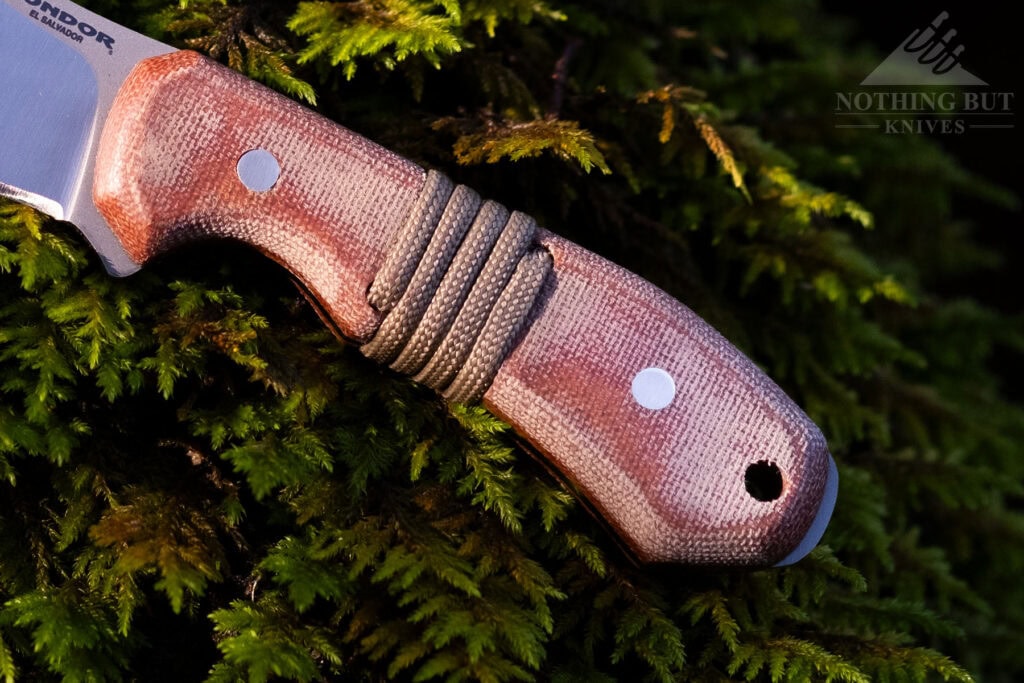
This will sound wrong, but the handle has a sort of refined boxy feeling to it. It’s nice to hold because the corners are all well rounded, but it still has the impression of corners so it feels easy to index and control the blade.
The natural Micarta scales and the paracord wrap also make the knife grippy on another level. The handle mostly has a four-finger grip. The pinky is the odd man out on the angled section of the pommel, but it’s not uncomfortable at all.
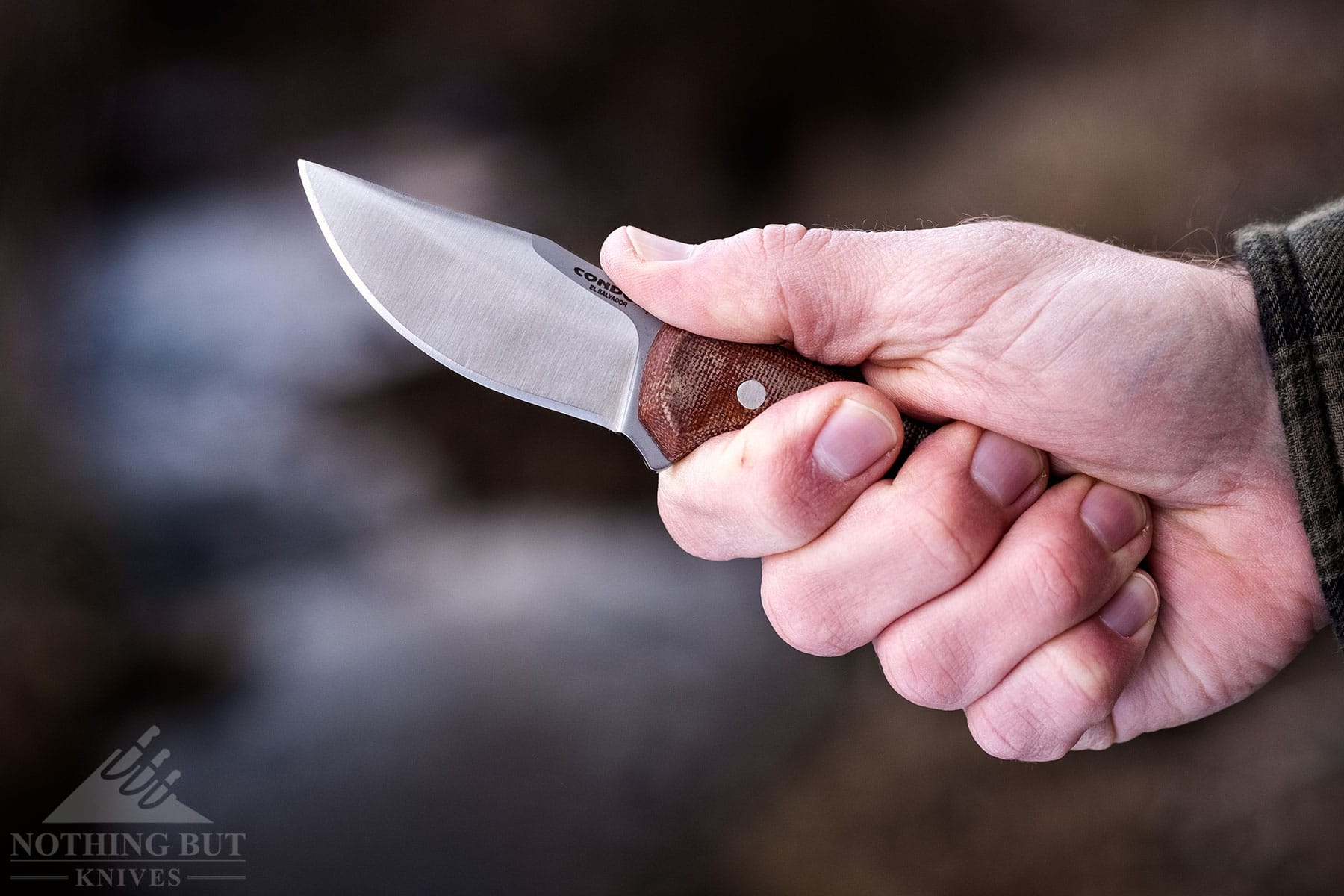
An odd but nice surprise was that, while the spine is a pretty hard 90°, it doesn’t seem to bite into my thumb when I have to push hard into a cut (at least, no more than any thin slab of metal would). But this will definitely throw spark on a ferro rod.
The finger guard is also sized and placed well enough that it usually doesn’t feel like it gets in the way when I want to choke up on the blade and carve close to the handle.
I also like the protruding tang at the pommel. It sticks out just enough to be useful for hammering or striking fire steel, but it’s still subtle so it doesn’t look weird or dig into my hand in a tightened grip.
A Champ in Vertical Carry
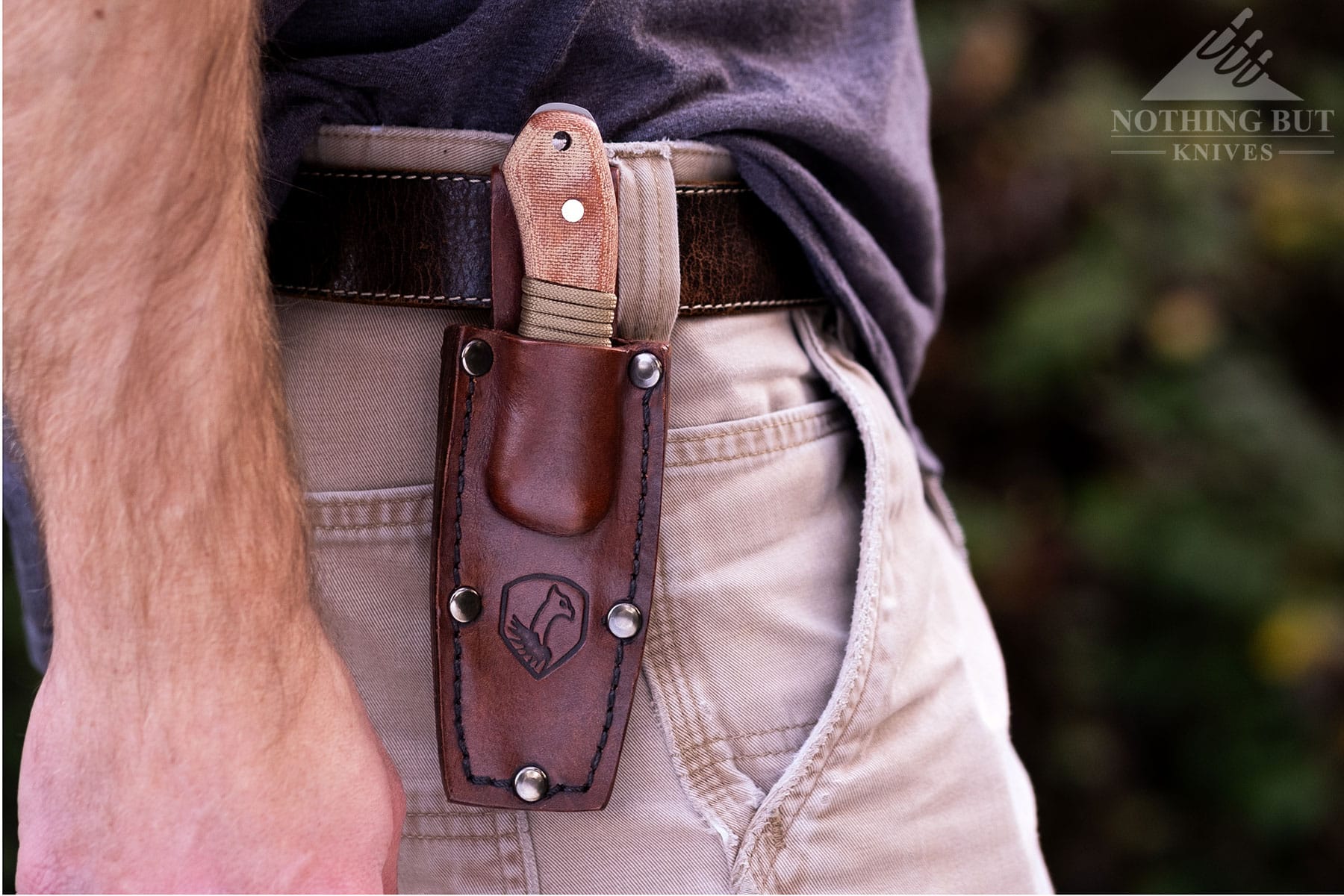
Coming from someone who defaults to some kind of horizontal carry as a way of life, this knife works really well as a right-hand vertical carry. The handle rides low, and the loop keeps a tight grip on a leather belt (it was actually an-almost-too-tight fight on a 1.5-inch wide belt). The sheath retention is also just loose enough that I can draw the knife with my thumb and index finger, but the knife sits deep enough that I’m not too worried about it slipping out as the leather loosens up more with age.
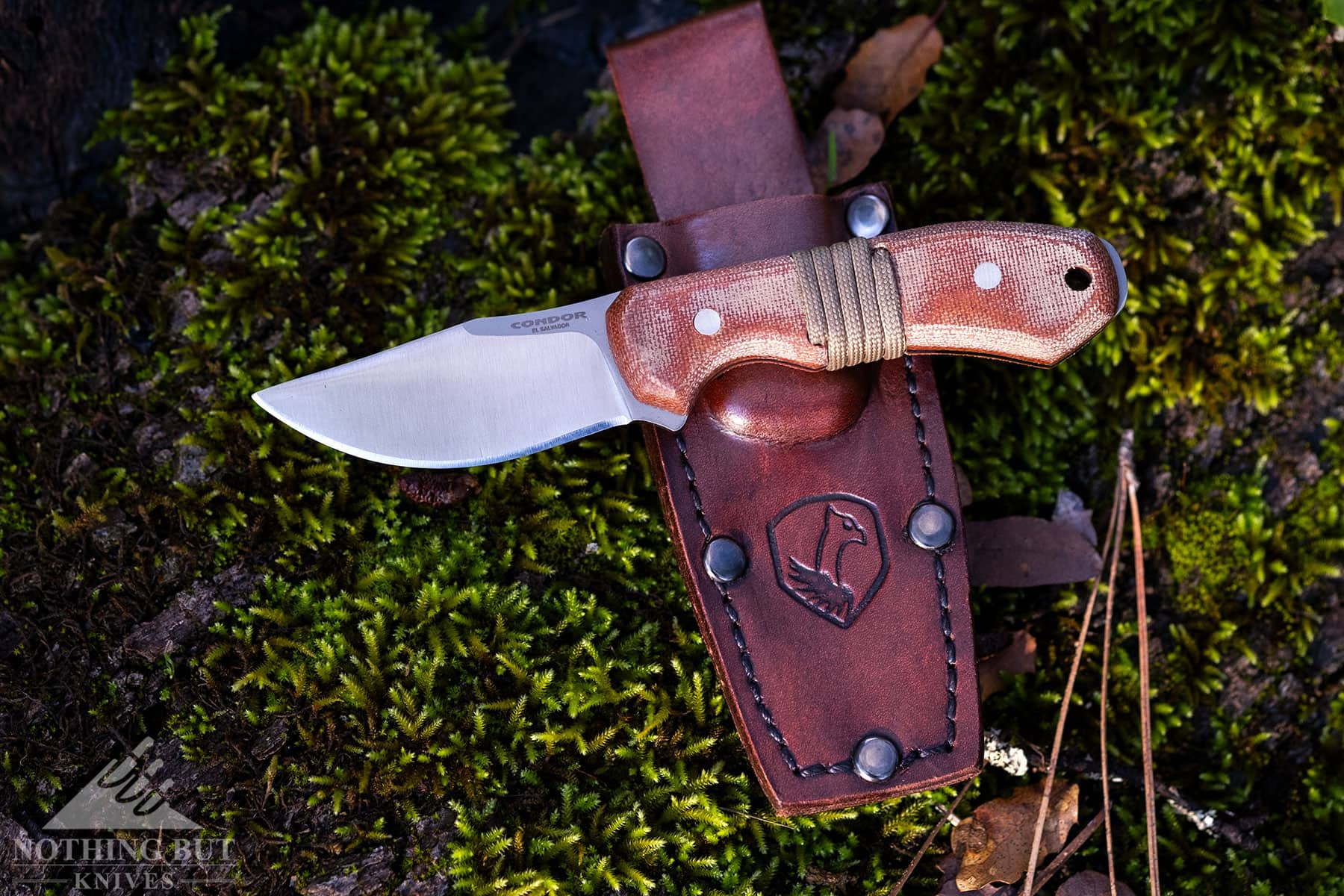
I actually started taking it out as an EDC every now and then because it felt pretty natural on my belt.
The sheath itself is also great quality, as Condor sheaths often are. It’s stitched and bolted together and has been aging nicely since I picked it up a couple years ago.
A Stainless Outdoors Kind of Blade
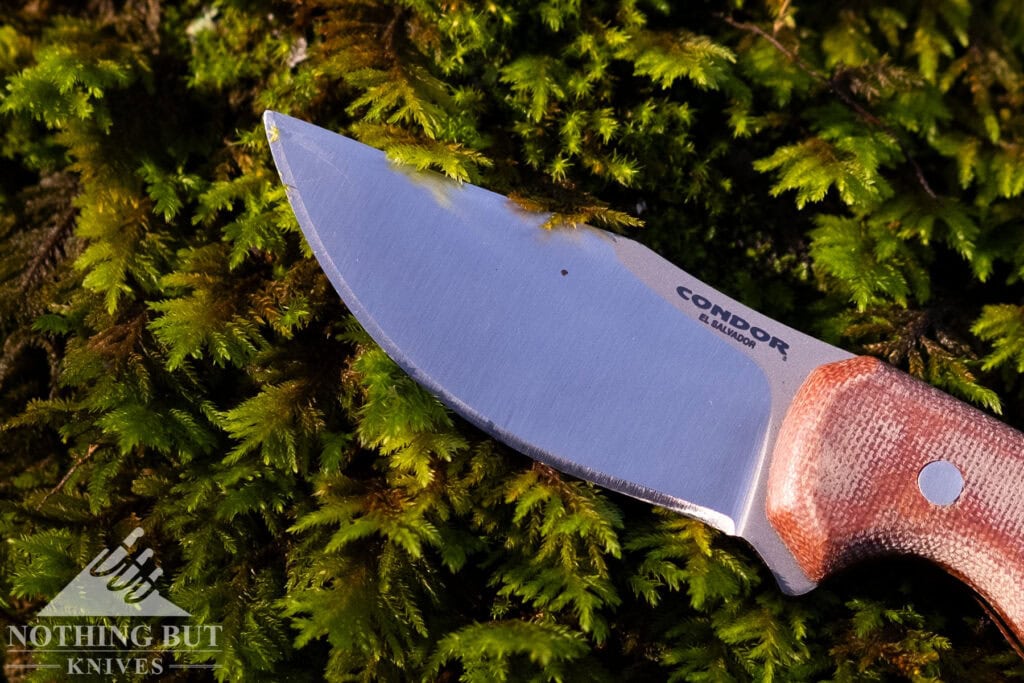
I’m always happy to see Sandvik 14C28N steel on an outdoor knife, almost regardless of price. It’s tough, highly stainless, and one of the easier steels to maintain in the field.
The edge isn’t a fine slicer out of the box but it’s fine for its intended tasks and it’s easy to fix up.
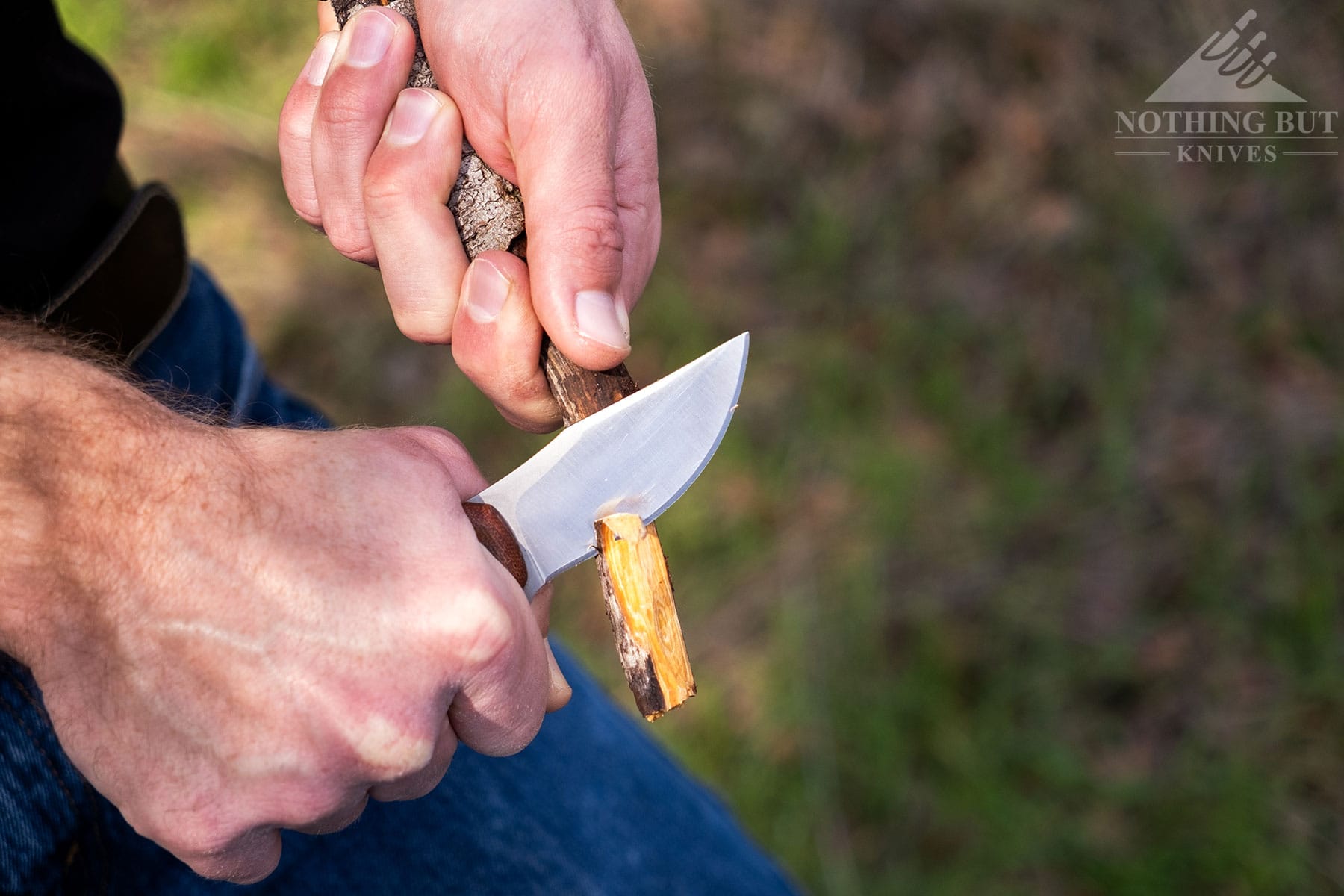
The secondary edge (the bevel behind the cutting edge) is very prominent. It’s taller and wider than a lot of modern knives tend to be these days. So not only is it easy to see when the edge rolls or chips, it’s easier to see whether you’re sharpening it along the right angle.
The shape of the blade does make it a little tricky to maintain (at least for me), mainly because of the large belly and the absence of a sharpening choil. The cutting edge stops just against the top of the finger guard. I can get at it okay with a honing rod, but stropping it is kind of a pain and I don’t think I’ll ever approach this thing with a regular stone.
Comparison and Alternatives
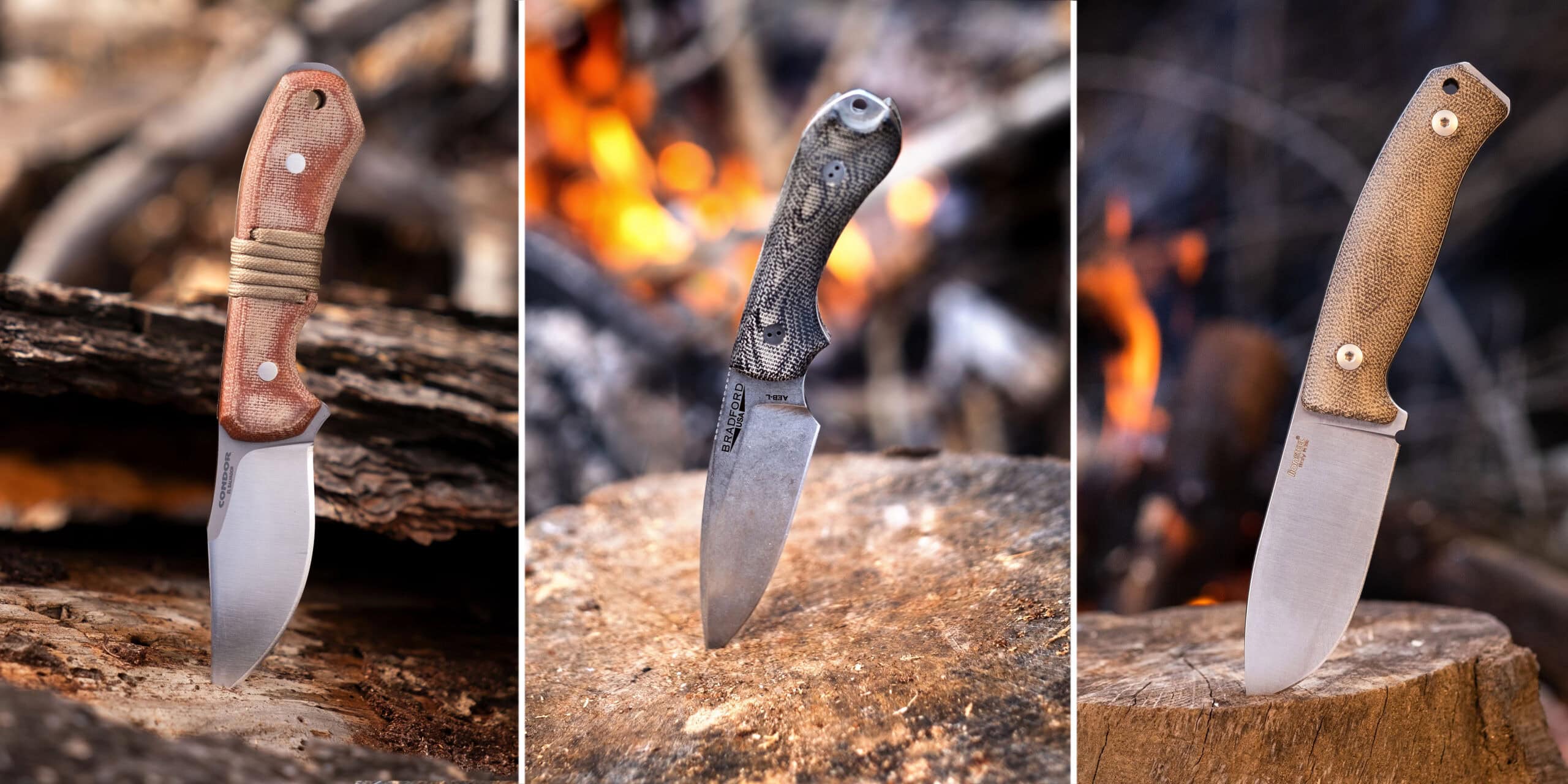
Condor has a whole Mountaineer Trail series of knives that are worth a look, but the most relevant is the drop point of this knife with black Micarta handles.
By size the Bradford Guardian 3 is worth a look. Although the two have very different blade shapes. I like the Guardian three because I can choke up much closer on the blade.
The LionSteel M2M is a premium alternative that’s larger by about an inch. That’ll get you a properly full four-finger grip on a handle that is significantly more comfortable (which is saying a lot in this context).
The Boker Arbolito El Heroe is similar in size and feel, although the leather sheath is a different beast. It’s a little smaller all around, and the handle doesn’t feel as comfortable, but the steel does have better edge retention.
If you are looking for something with a pocket friendly sheath, check out the MKM Pocket Tango. It is a bit more expensive, but the Magnacut blade and magnetic leather sheath help to justify the price.
At its current price point of around $100, the Trail Wingman is tough to beat if you are looking for a small camping fixed blade. I liked it enough to include it in our article on the Top Survival Knives, because it is a great compact or back-up option.
A Nice Little Hiking Buddy with Broad Capabilities
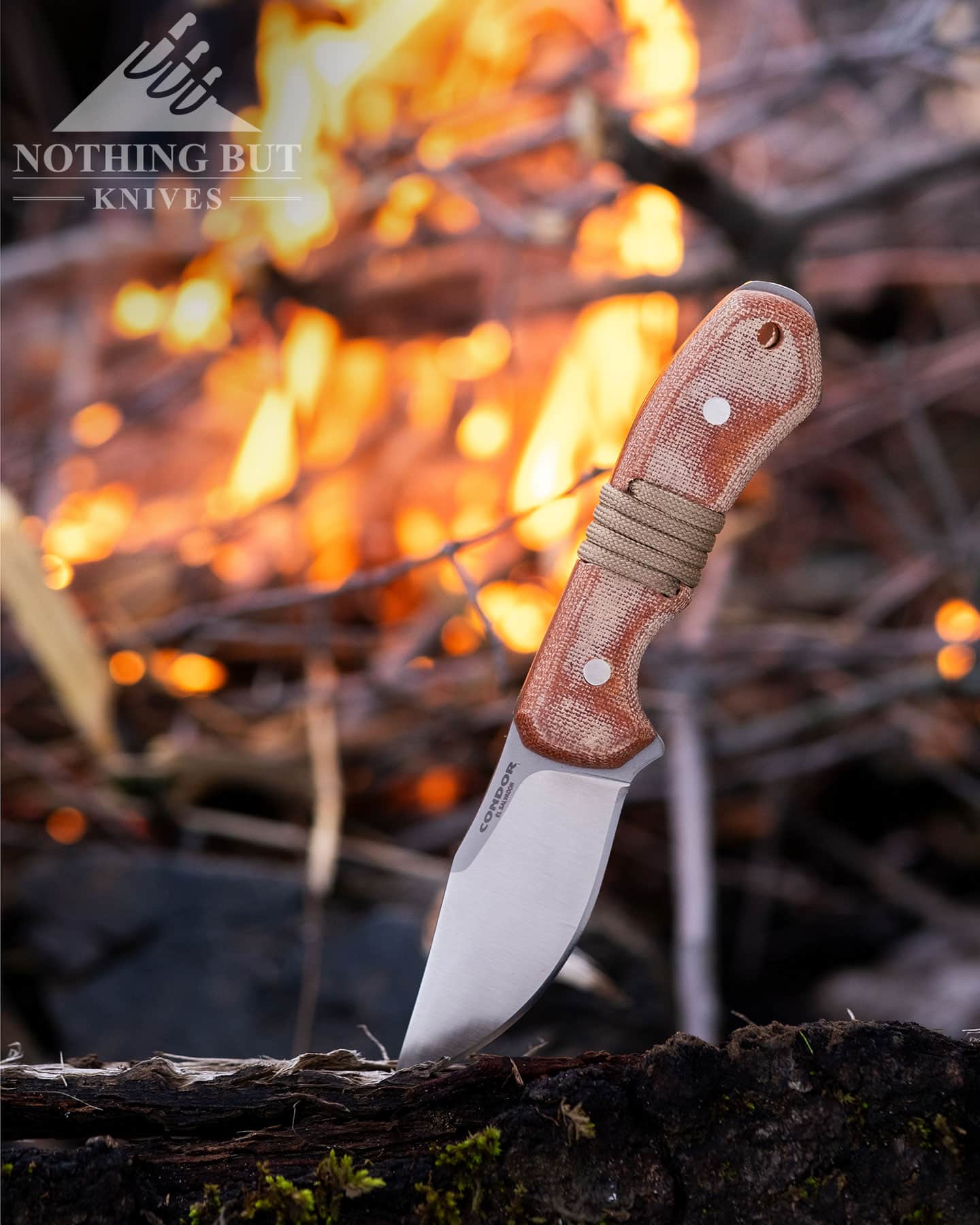
It’s the kind of knife that more than justifies its own weight and space.
A pint-sized blade with a comfy Micarta handle and a tough steel packed into a leather sheath that rides tight to the belt is a recipe for good times outdoors. The only thing that keeps it off my belt for a day hike is that the big-bellied blade shape isn’t my personal preference. Other than that, it has a great edge grind for carving wood, and plenty of campfire-building utility.
Not a bad wingman to have on most trails.
